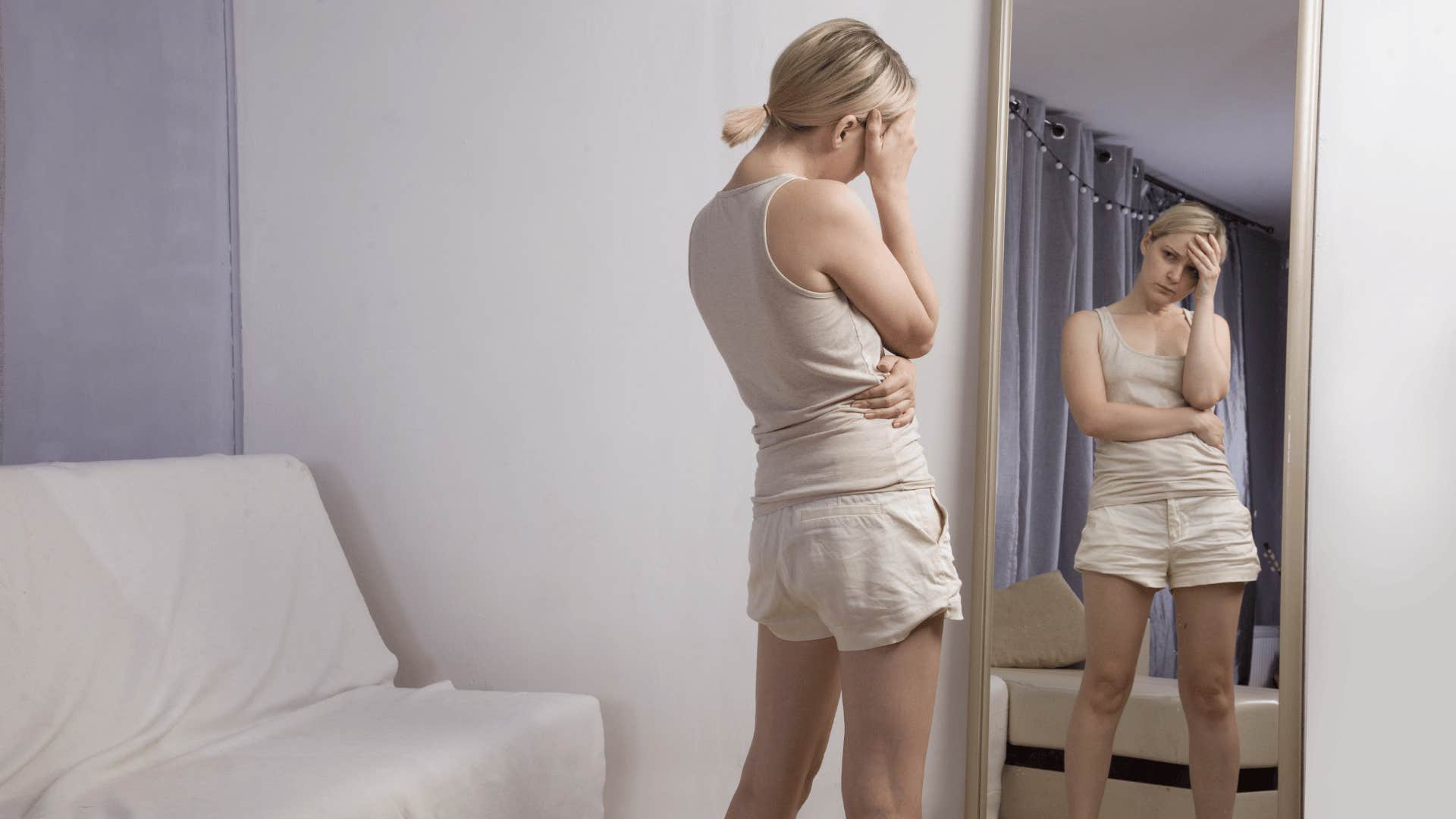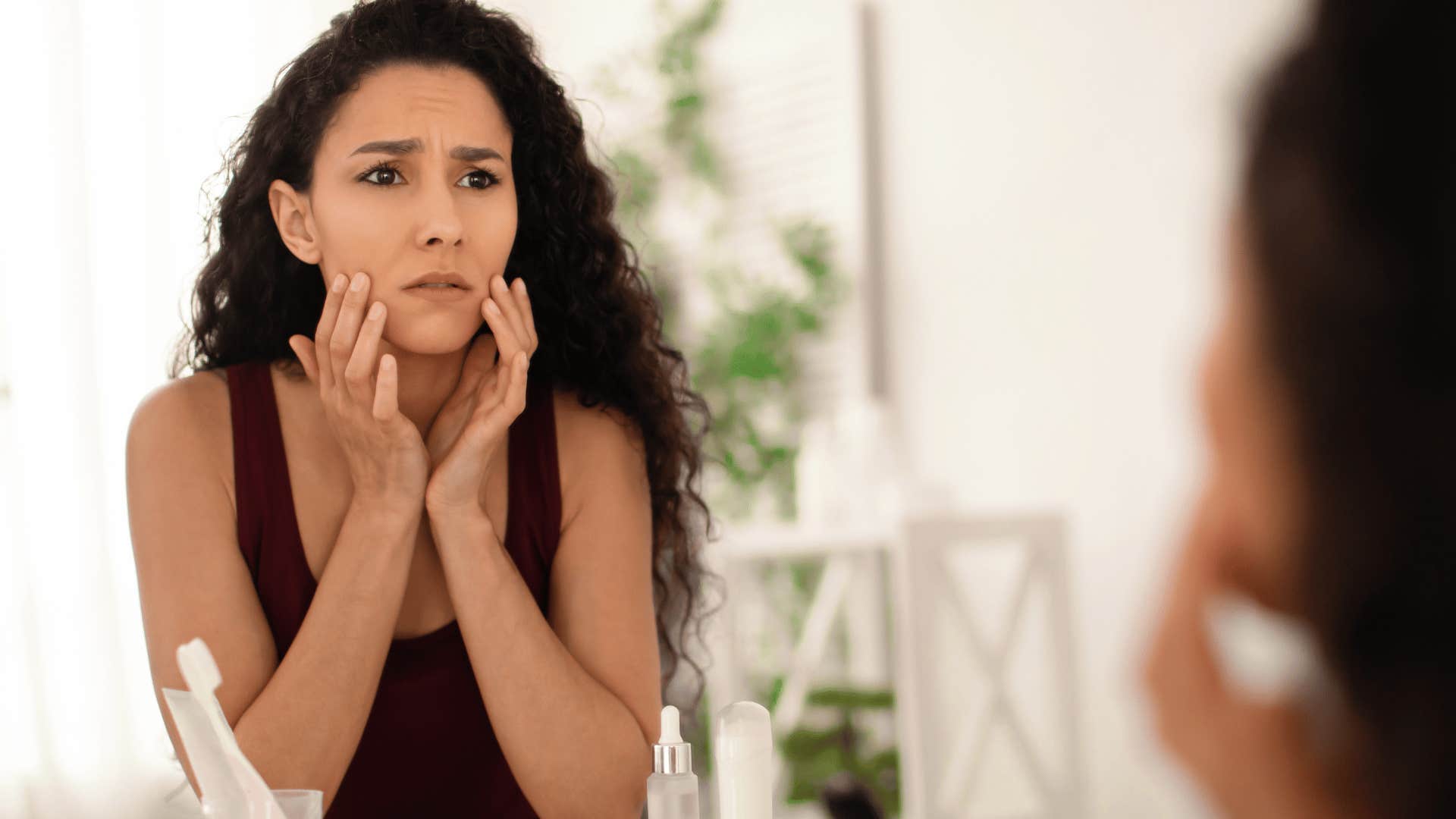6 Things We Blame On Men That Are Totally Not Their Fault
Not cool, ladies.
 Budgeron Bach | Pexels
Budgeron Bach | Pexels Interestingly, with all of the emphasis placed on empowering women, more and more stigmas and myths around sexuality are being directed towards men. While I don't believe this movement is taking away men's voices, I also don't believe we're empowering men to understand that they have a role and a voice in the conversations around sexuality as well.
Men are half of what's going on, and they're not always the perpetrator. Quite often, they're also victims of a larger society that places a lot of emphasis on sex but doesn't invite anyone to take an active role in their own sexuality. Men need to have a voice in the dialogue, too. Some male issues are very subtle, but the negative messages still sink in.
Here are just 6 issues we tend to blame on men that actually hurt guys just as much as they hurt us:
1. Body image issues
 Tatyana Dzemileva | Shutterstock
Tatyana Dzemileva | Shutterstock
Body image isn't an issue that affects women only. Men hide under their clothes, diet obsessively, take steroids , and suffer silently when it comes to body image, just as women do. It's commonplace to he a woman tell her girlfriends or her boyfriend, "I feel fat," but rarely do men have such a voice or place to express this when they feel it.
We encourage women to embrace curvy bodies and blame men and the media for perpetuating the size 0 image without considering that men see "ideal male" images in the media and receive criticism from women as well. So, let's start by recognizing that body image issues affect both men and women.
Women sometimes blame men for their body image issues because of the pervasive societal messages that perpetuate unrealistic beauty standards for women, often dictated by male perspectives, which can lead to internalized pressure to conform to those standards and feel judged by men based on their appearance, particularly within a patriarchal culture where male gaze holds significant power. A study published by the National Library of Medicine explained that this can manifest as feeling like men are the source of their body dissatisfaction, even though the root issue lies within societal norms.
2. Self-esteem problems
 Prostock-studio | Shutterstock
Prostock-studio | Shutterstock
Women aren't the only ones who can suffer from low self-esteem.
I know this may sound like a no-brainer, but men are victimized every day via bullying and sexual harassment, just as women are. Men aren't excluded from this suffering, and it would help all of us a great deal if men felt it was okay to share their experiences openly without being shamed.
Women may blame men for their self-esteem issues because it's easier to assign the role of perpetrator to men and the role of victim to women. Research referenced by The Centre for Male Psychology explained that this tendency may make it difficult to see men as victims and respond compassionately to their suffering.
3. Strict gender roles and identities
 puhhha | Shutterstock
puhhha | Shutterstock
Fifty or sixty years ago, the rules around gender were much simpler. Men went to work and were the breadwinners, while women stayed home, raised children, cooked, and cleaned. Nowadays, with women working, more men are finding themselves with domestic roles as well.
Although many men and women find this is acceptable and egalitarian, it is still a shift from how things were for the vast majority of history. This creates some identity confusion for men, especially when they receive mixed messages. It's important to recognize that allowing men the freedom to express their feelings and confusion makes any negative, misogynistic messages they receive less powerful.
4. Dating "rules"
 MAYA LAB | Shutterstock
MAYA LAB | Shutterstock
Talk about confusing! Many men were raised to believe that they need to ask and take the woman out, whereas we've been simultaneously empowering women to not only ask men out but often to pay (or at least offer to go Dutch) on the first date. Many men appreciate this break from the responsibility, but not addressing the confusion it creates can cause tension later in other areas of the relationship.
Does a guy still need to ask a girl's father for her hand in marriage? Some women do still like these more traditional aspects of courting and some find them entirely offensive. There are so many conversations like this to be had now, so it's even more important for men to speak up and start asking more questions.
People may blame others in relationships for several reasons, including avoiding responsibility, protecting their self-esteem, or feeling superior to the other person. However, a 2022 article in Psychology Today explained that blaming a partner can have negative consequences, such as eroding trust, emotional abuse, losing perspective, and unhealthy relationships.
5. Emotional disclosure
 Tirachard Kumtanom | Shutterstock
Tirachard Kumtanom | Shutterstock
A 2021 study published by the University of Plymouth found that women often blame men for lack of emotional disclosure because of societal expectations that portray men as needing to be stoic and emotionally reserved, leading to a perception that men are not adequately sharing their feelings, which can create frustration and a sense of disconnect in relationships, particularly when women are typically encouraged to be more emotionally expressive.
Not all men avoid emotional disclosure, and not all women expect the same level of openness. Open and honest communication about emotional needs can help couples navigate differences in emotional expression.
6. "Flirting" with other women
 New Africa | Shutterstock
New Africa | Shutterstock
Women might sometimes blame men for flirting with "every single woman" because of a combination of factors, including societal expectations of male behavior, potential insecurity about their relationship, a perception of men being overly focused on physical attraction, and a lack of clear boundaries in how men flirt, which can be interpreted as excessively aggressive or disrespectful by some women, according to a 2022 article in Psychology Today. Society often portrays men as the "initiators" in relationships, leading to an expectation that they should actively approach and flirt with women, which can be seen as excessive when directed at many women.
Moushumi Ghose is a sex-positive therapist based in Los Angeles, as well as the co-host of the queer-centric TheSexTalkSeries on YouTube. You can follow her on Twitter and Facebook.

